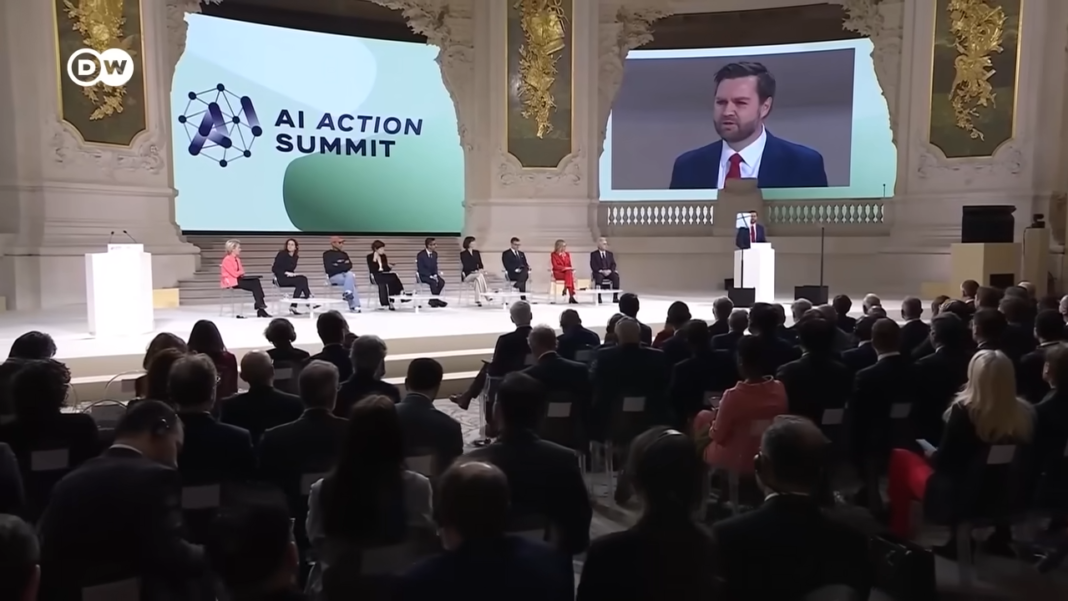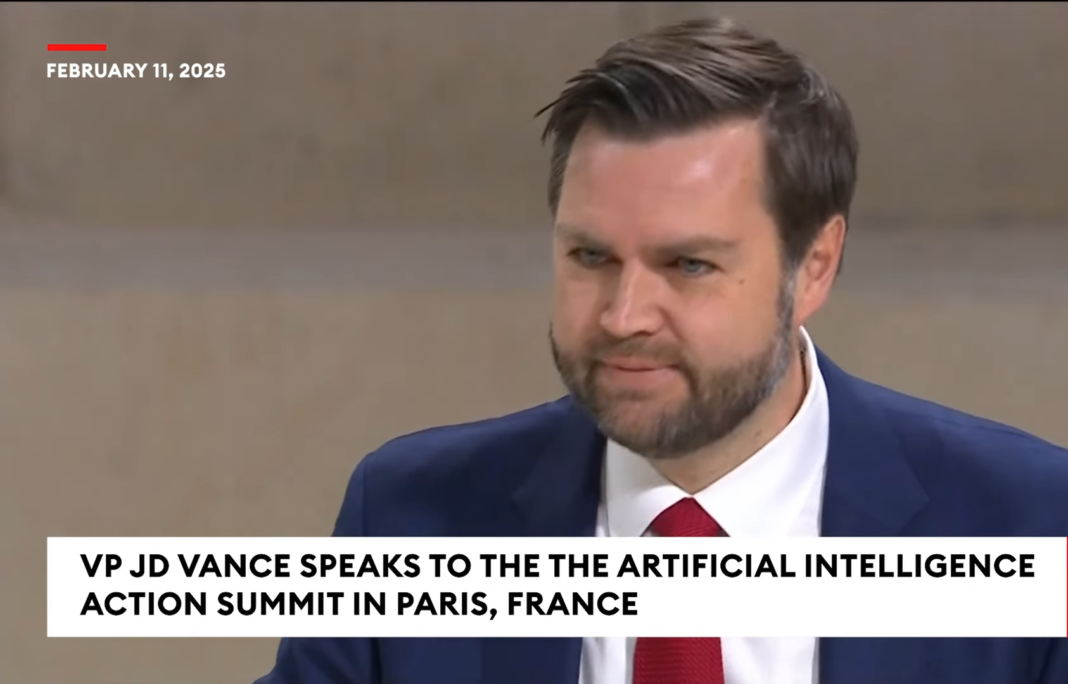The Paris AI Summit brought together world leaders, policymakers, and experts to discuss the future of artificial intelligence. The primary objective was to establish a unified global framework for AI regulation. However, the event highlighted starkly different approaches between key players. France’s President Emmanuel Macron emphasized the necessity of global rules for AI, while the U.S. and the U.K. resisted signing a joint declaration.
The Debate: Regulation vs. Innovation
The United Nations Secretary-General Antonio Guterres warned of AI’s power being concentrated among a few nations, corporations, and scientists. While some leaders advocated for regulation to ensure AI’s ethical use, others feared that excessive restrictions would stifle innovation. The U.S. Vice President JD Vance argued that overregulation could paralyze AI’s potential in industries like healthcare, national security, and economic development.
Competing AI Strategies: Europe, China, and the U.S.
Three major AI strategies emerged:
- Europe – Advocating for strict regulations and ethical guidelines.
- China – Rapidly expanding AI through state-backed enterprises.
- United States – Promoting minimal regulation to fuel innovation and economic growth.
This divergence in strategies creates an ongoing challenge in forming a globally accepted AI governance framework.
The AI Declaration: A Partial Agreement
At the summit, 61 countries signed a declaration to ensure AI remains open, ethical, and secure. However, the absence of U.S. and U.K. signatures highlighted the ongoing divide. Supporters of the declaration see regulation as essential to ensuring AI’s responsible use. Critics argue that restrictive policies could slow down advancements and give certain countries an economic edge.
The Role of AI in Society and Business
Speakers at the summit emphasized AI’s role in transforming industries. AI is expected to aid in medical research, energy solutions, and financial innovations. However, concerns persist over the potential misuse of AI by malicious actors. Questions were raised about how to restrict bad actors without limiting beneficial advancements.
The European Perspective on AI Regulation
European leaders continue to push for AI that aligns with human rights, transparency, and inclusivity. The fintech sector was cited as an example where regulation fostered growth rather than stifling it. European policymakers stress that AI should serve the public good and avoid ideological influence.
The Geopolitical Landscape of AI
AI regulation is no longer just a technological issue—it has become a political debate. Digital diplomacy is emerging as a crucial aspect of AI governance. Nations must balance innovation with security, ethics, and economic competitiveness. The discussions at the summit indicate that further negotiations will be necessary to align AI strategies across different regions.
Future Outlook: The Next Steps
Looking ahead, AI governance will require continuous dialogue and compromise. Key areas of focus include:
- Regulatory Balance: Striking a middle ground between overregulation and unchecked development.
- Ethical AI Use: Ensuring AI serves humanity without bias or misuse.
- Global Cooperation: Bridging the divide between different AI strategies.
- Economic Impact: Supporting AI-driven industries while maintaining fair competition.
Without collaboration, the global AI landscape risks fragmentation, which could lead to economic and technological imbalances.
Conclusion
The Paris AI Summit showcased the growing divide in AI governance. While some countries push for stringent regulations, others resist for fear of stifling innovation. Moving forward, policymakers must navigate this complex terrain to create an AI framework that balances growth, ethics, and security.
Disclaimer
This article presents a summary of discussions from the AI summit. The views expressed by speakers do not necessarily reflect those of the author or this publication. Readers should refer to official policy documents for more details.
Dr. Ethan Ramirez is a leading AI strategist with 12+ years of experience in developing AI solutions for Fortune 500 companies. He holds a PhD in Machine Learning and regularly speaks at global AI conferences.




